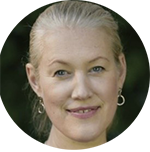Clinical trials for rare diseases have always presented special challenges. From investigator training to data collection, conducting clinical research for interventions targeting orphan disorders is mired with condition-specific challenges that slow the development process and place an enormous burden on patients wishing to participate in a potentially life-saving clinical trial. To reduce that participation burden — on patients, their families and on investigators — rare disease researchers would be well-served to consider decentralized clinical trial (DCT) tools and methods to bring clinical trials directly into patients’ homes.
Even prior to the COVID-19 pandemic, the industry was moving away from the traditional clinical trial model in which patients are screened and enrolled at a limited number of sites toward a more patient-centered model that reduces (if not eliminates) travel time and other logistical barriers for participating in a clinical trial. As we look ahead at continuing research in the post-pandemic era, a hybrid model leveraging patient-friendly technology and remote study visits will surely emerge.
Particularly useful for rare disease studies, a patient-focused hybrid development model that includes DCT components can not only help to identify potential patients and investigators more quickly, but can also help collect real-world data from the population of patients for whom the intervention is targeted — data that are increasingly vital (and requisite) for regulators and payers.
During this interactive discussion, we’ll discuss the unique challenges in recruiting both patients and investigators for rare disease trials, and how a DCT model can alleviate the burden of participation while also enabling research-naive physicians access to novel treatment pathways for their patients.
Register for this webinar to hear panelists examine the appropriateness and feasibility of DCT methods for specific rare disorders, and explore the various factors trial sponsors should consider when selecting technology — such as patient engagement platforms or wearable data collection devices — for rare disease trials.
Speakers

Jonathan Cotliar, Chief Medical Officer, Science 37
Jonathan Cotliar is the chief medical officer for Science 37. He previously served as vice president of medical affairs, where he contributed as an investigator on a number of virtual clinical trials in addition to his work in support of business development and regulatory strategy.
Jonathan is board-certified in both internal medicine and dermatology. He serves as director of inpatient dermatology at Harbor-UCLA Medical Center, with previous full-time faculty appointments at the David Geffen School of Medicine at UCLA, Northwestern University Feinberg School of Medicine, and City of Hope National Medical Center, where he was chief of the Division of Dermatology.
Jonathan received his BA from Trinity College, MD from the University of Kentucky College of Medicine, and completed his training in dermatology and internal medicine at the David Geffen School of Medicine at UCLA. While at UCLA, he completed an NIH-sponsored K30 Fellowship in translational investigation.

John Hogan, Senior Director - Clinical Operations Development, Voyager Therapeutics
With more than 28 years of drug development experience, John Hogan has a reputation for finding innovative ways to reduce the cost and duration of clinical trials. Within the Clinical Operations Development group at Voyager Therapeutics, John is tasked with building Voyager’s clinical operations infrastructure while championing continuous process improvement focused on improving the clinical trial experience for patients and caregivers.
He was previously the Director of Clinical Operations for Finch Therapeutics, helping to streamline the company’s pharmacovigilance processes and procedures; and also helped to build the clinical operations team at Momenta Pharmaceuticals.

Julie Walters, Founder and Executive Director, Xperiome™
Julie Walters is the driving force behind Xperiome™ the health tech dedicated to speeding up the development of rare disease treatments, as well as empowering patients and their families to learn more about their condition and contribute to research.
She has a first-class degree in molecular genetics from King’s College London and a background in popular journalism, before combining her skills to drive change in health. She is an entrepreneur by nature and believes in harnessing the power of families affected by rare disease. She believes families are the force that can move the mountains when talking about rare diseases. They will be the activators of change.
She is the winner of multiple awards, including Female Entrepreneur of the Year at the UK’s 2017 Enterprise Awards.

Nuala Summerfield, Founder and Chair of Trustees, The Schinzel-Giedion Syndrome Foundation
Nuala Summerfield is the Founder and Chair of Trustees of The Schinzel-Giedion Syndrome (SGS) Foundation, the only organization representing the international SGS community.
As a practicing veterinary surgeon for more than 20 years and a board-certified veterinary cardiologist, Nuala has been involved in both clinical practice and in clinical research studies. As a clinician and scientist, Nuala understands the need to practice evidence-based medicine founded on scientifically rigorous studies. However, as a parent of a child with SGS, she also understands the desperation of patients and their families to have research move more quickly from the laboratory to the clinic, to accelerate the development of effective therapies for rare disease.
Nuala graduated from the University of Edinburgh School of Veterinary Medicine in Scotland and completed a residency in Veterinary Cardiology at UPenn. She is also the co-founder of Virtual Veterinary Specialists, a leading teleconsultation and telediagnostics company which uses the latest technologies to seamlessly integrate board-certified specialists within veterinary clinics, increasing access to specialist-level healthcare and improving patient outcomes.
Who Should Attend?
This interactive and insight session is a must-see for any biopharmaceutical sponsor looking to implement or transition to a decentralized clinical trial. Titles can include:
- C-suite in Clinical Trials Management
- Therapeutic Lead/Head
- Clinical Development Director
- Clinical Development Manager
- Clinical Operations
- Clinical Risk Manager
- Information System Management
- Information Technology
- Innovation Lead/Head
- Medical Director
- Operational Director
- Project Management
What You Will Learn
Attendees of this session will learn:
- How to identify which DCT elements are appropriate and applicable to rare disease research
- How DCT tools and methods can increase patient enrollment and retention
- How to identify which factors to consider when selecting technology such as patient engagement platforms or wearable data collection devices — for rare disease trials
- How working with patient advocacy groups can ensure patient-focused study design and patient-important endpoints
- How investigator networks can be leveraged to accelerate site start-up
- How a DCTmodel can enable research-naive physicians access to novel treatment pathways for their patients
Xtalks Partner
Science 37
Science 37 is making the promise of virtual trials the new reality. By engaging with patients from the comfort of their own home, we provide access to patients who can never be reached by traditional site-based models. We have proven to enroll faster, retain patients at a higher rate, and reach a more representative population. Science 37 has conducted more decentralized, interventional trials than any other company, using an expansive, in-house network of telemedicine investigators and home-health nurses, who are supported by the industry’s most comprehensive, fully integrated, decentralized clinical trial platform.
You Must Login To Register for this Free Webinar
Already have an account? LOGIN HERE. If you don’t have an account you need to create a free account.
Create Account




